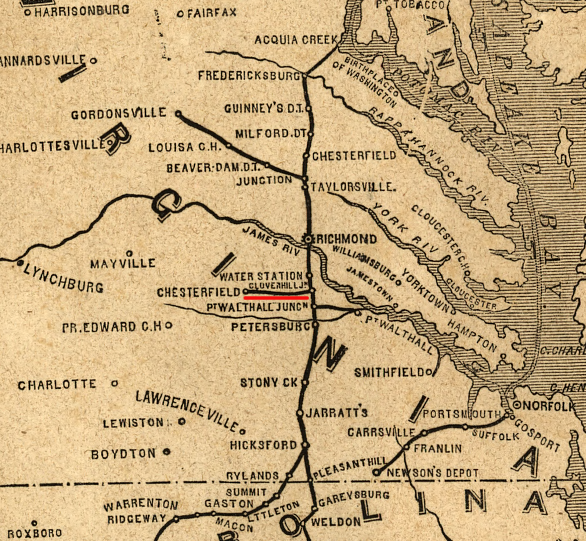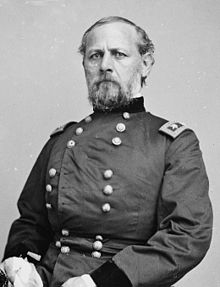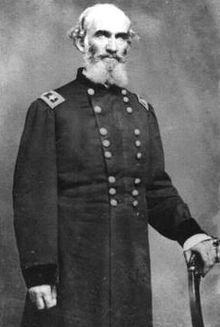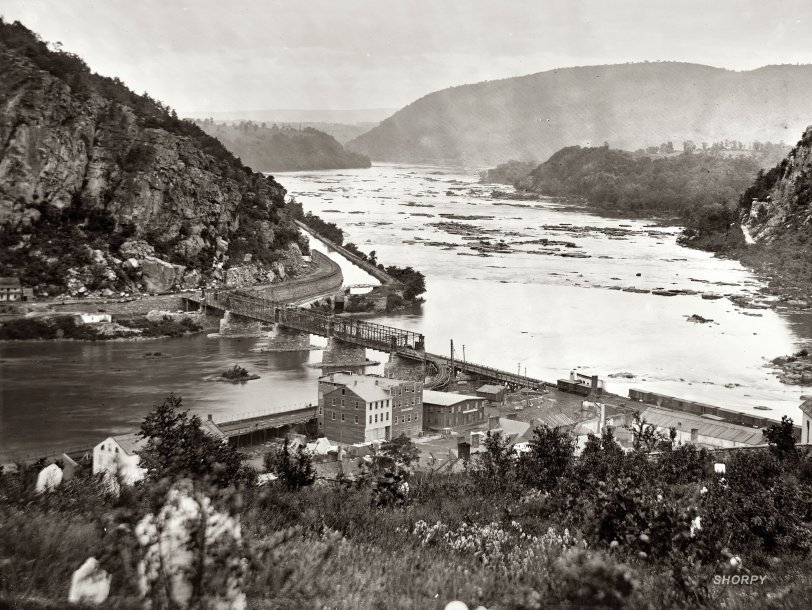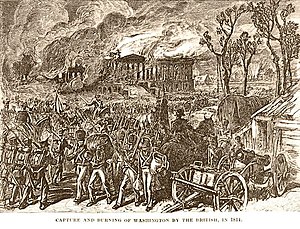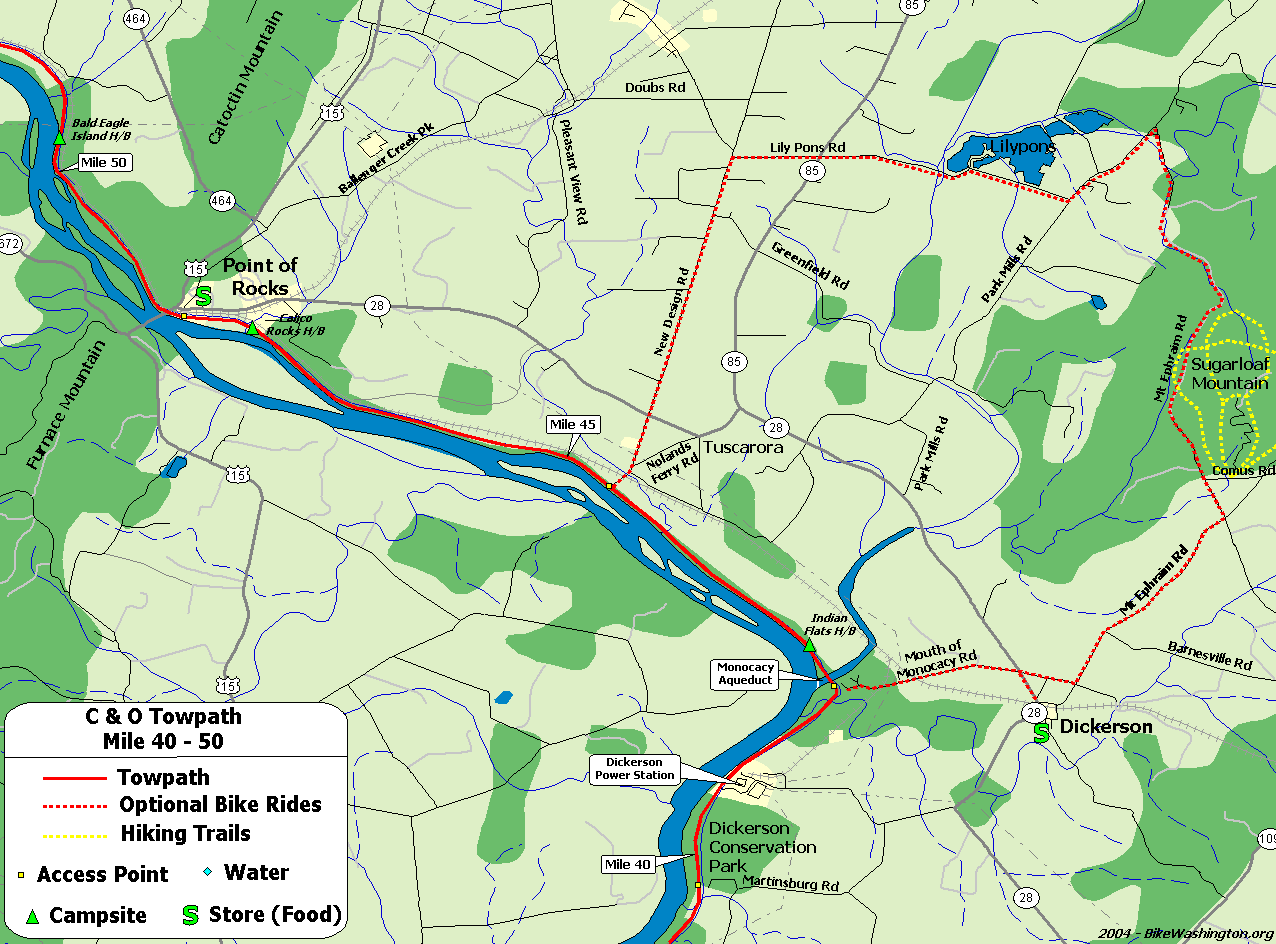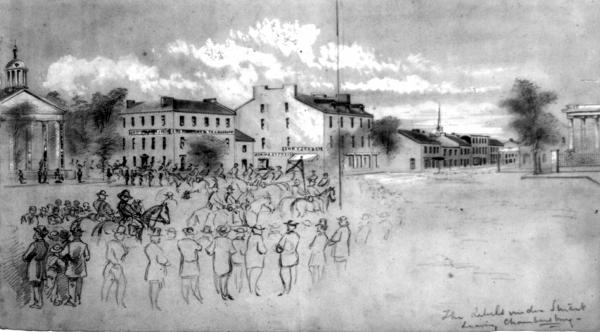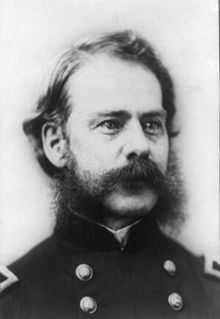 |
| Battery Robinette (ohio.edu) |
GRANT'S HEADQUARTERS,
Jackson, Tenn.,
October 5, 1862.
Yesterday the rebels, under Van Dorn, Price, and Lovell, were repulsed
from their attack on Corinth with great slaughter. The enemy are in full
retreat, leaving their dead and wounded on the field. Rosecrans
telegraphs that the loss is serious on our side, particularly in
officers, but bears no comparison with that of the enemy. General
Hackleman fell while gallantly leading his brigade. General Oglesby is
dangerously wounded. McPherson reached Corinth with his command
yesterday. Rosecrans pursued the retreating enemy this morning, and
should be attempt to reach Bolivar will follow him to that place.
Hurlbut is at the Hatchie with 5,000 or 6,000 men, and is no doubt with
the pursuing column. From 700 to 1,000 prisoners, besides wounded, are
left in our hands.
U. S. GRANT,
Major-General, Commanding.
Major-General HALLECK.
HEADQUARTERS,
Jackson, Tenn.,
October 5, 1862.
General Ord, who followed Hurlbut and took command, met the enemy to-day
on south side of Hatchie, as I understand from dispatch, and drove him
across the stream and got possession of the heights with our troops. Ord
took two batteries and about 200 prisoners. A large portion of
Rosecrans' forces were at Chewalla. At this distance everything looks
most favorable, and I cannot see how the enemy are to escape without
losing everything but their small-arms. I have strained everything to
take into the fight an adequate force and to get them to the right
place.
U. S. GRANT,
Major-General.
BIG MUDDY, TENN.,
October 5, 1862-5 a. m.
Major General U. S. GRANT, Jackson, Tenn.:
The column is moving toward the Hatchie. Bridges and levee across the
Muddy very bad, and have to be repaired. Three regiments of cavalry are
near Hatchie. Shall disperse them as soon as infantry and artillery can
reach them.
Dispatches from General Ross say that provision train will be here to-day with Major-General Ord.
[S. A. HURLBUT,]
Major-General.
HEADQUARTERS,
Corinth, October 5, 1862.
The following are among the rebel officers killed and wounded: Colonel
Pritchard, Third Missouri, severely wounded; Colonel Johnson, Twentieth
Arkansas, killed; Colonel Daly, Eighteenth Arkansas, severely wounded;
Colonel Rogers, Second Texas, killed; Colonel Martin, commanding Fourth
Brigade, First Division, killed; Major Jones, Twentieth Arkansas,
killed; Colonel McLain, Thirty-seventh Mississippi, mortally wounded.
W. S. ROSECRANS,
Major-General.
General GRANT.
HEADQUARTERS ARMY OF THE MISSISSIPPI,
Corinth, Miss., October 5, 1862.
Brigadier-General HAMILTON,
Commanding Division:
I think it is advisable for you to occupy the ford on the Kossuth road
with a good regiment, with orders to ascertain whether the ford is
watched on the other side or not, and, if it watched, to ascertain the
nature of the force. This will be done by deploying a heavy line of
skirmishers and pushing them heavily, sending a piece of cannon, if
necessary, and making a big noise. Notify General McKean.
By order of Major-General Rosecrans:
[C. GODDARD,]
First Lieutenant, Twelfth Infty. Ohio Vols., Actg. Asst. Adjt. General
HEADQUARTERS ARMY OF THE MISSISSIPPI,
Corinth, Miss.,
October 5, 1862.
Brigadier-General McKEAN:
Halt your train, turn it out, and park it. I am told it is a mile long. Take nothing with you but ammunition and ration wagons.
You have left our advance guard without a support by your tardy movements. You are in the way of the other divisions.
By orders of Major-General Rosecrans:
[H. G. KENNETT,]
Lieutenant-Colonel and Chief of Guards and Outposts.
HEADQUARTERS ARMY OF THE MISSISSIPPI,
October 5, 1862.
Brigadier-General McPHERSON,
Commanding Advance:
No report from you. If you reach Chewalla ascertain if the enemy passed
by Young's Bridge. Halt at that point until Stanley overtakes you.
Meanwhile reconnoiter to Young's Bridge. Occupy it with a regiment and
reconnoiter beyond. Push an advance guard, but not beyond support,
toward Pocahontas.
By order of Major-General Rosecrans:
C. R. THOMPSON,
Lieutenant and Ordnance Officer.
HEADQUARTERS ARMY OF THE MISSISSIPPI,
Corinth,
October 5, 1862.
Brigadier-General McPHERSON:
Dispatch received. Sent you word to wait for supports on account of the
delay of General McKean; the column has been halted and fallen
behindhand. Try to open communication with Bethel and our cavalry, who
have been sent to the right.
By order of Major-General Rosecrans:
[H. G. KENNETT,]
Lieutenant-Colonel and Chief of Staff.
HEADQUARTERS ARMY OF THE MISSISSIPPI,
October 5, 1862-1.30 p. m.
Brigadier-General STANLEY,
Commanding Division:
Dispatch received; will send you another guide. You should have taken
the road to the right, this side of Cane Creek, which keeps north of the
railroad. If you are not too far advanced it would be better for you to
face by the rear and do it now, as you will reach Chewalla soon.
The right-hand road turns off 2 miles in rear of Alexander's. Let the
advance guard go well ahead, sending its advances forward to report the
road back to the head of the column. At Smith's there is a road that
runs across the railroad to Concord Meeting-House, about 5 miles from
Chewalla, on Hamburg and Chewala road. Smith's is a mile from Jones'.
By order of Major-General Rosecrans:
C. GODDARD,
First Lieutenant Twelfth Infty. Ohio Vols., Actg. Asst. Adjt. General
HEADQUARTERS ARMY OF THE MISSISSIPPI,
Corinth,
October 5, 1862-2 p. m.
Brigadier-General STANLEY,
Commanding Division:
You had better take the nearest northern road. I will send you a guide.
McKean's halt appears to have interfered with our movements. Advance
rapidly, and when you halt close in mass; get out of the road if
possible. Overtake McPherson if you can; nothing heard from him. Tell
your advance guard to get the names of all the houses on the road, and
when you write date your dispatch from the house, and side of the road
it is on.
By order of Major-General Rosecrans:
C. R. THOMPSON,
Acting Aide-de-Camp.
HOSPITAL NEAR DAVIS' BRIDGE, ON THE HATCHIE RIVER,
October 5, 1862.
GENERAL: We are in severe engagement across the Hatchie at Davis'
Bridge. We drove the enemy for about a mile to that point, taking at
least 200 prisoners and two batteries. The enemy has four batteries
playing upon us and a large body of infantry, and General Ord is
apprehensive we will have to fall back unless we are speedily
re-enforced.
This was the stage of the battle when we left for the hospital a few
moments ago, when General Ord was severely wounded just as he was
directing to send this dispatch to you.
A. B. SHARPE,
Captain and Aide-de-Camp.
Major-General GRANT.
P. S.-We have driven the enemy and taken possession of heights on the
other side. This I infer, as the firing has ceased and our men are going
forward. The firing has commenced. They have probably taken a new
position.
HEADQUARTERS ARMY OF THE MISSISSIPPI,
Corinth,
October 5, 1862-9 p. m.
Brigadier-General McKEAN,
Commanding Division:
Am coming out to Chewalla with car-load of water. No news from any of
you for several hours. Ord has been heavily engaged with the enemy at
Davis' Bridge. We must push on as lightly as possible. Baggage has, I
understand, interfered with your progress, which certainly has not been
remarkable. We must push ahead as soon as the men get a little rest, and
be with them by daylight. Send messengers to Chewalla reporting your
position.
By order of Major-General Rosecrans:
C. GODDARD,
First Lieutenant Twelfth Infty. Ohio Vols., Actg. Asst. Adjt. General
(General Davies, Stanley, Hamilton, and McPherson furnished with copies of above.)
HEADQUARTERS ARMY OF THE MISSISSIPPI,
Corinth,
October 5, 1862.
Major-General VAN DORN,
Commanding Confederate Forces:
Major-General Rosecrans' compliments to Major-General Van Dorn,
commanding officer Confederate forces, and states that provision has
been made for the burial of the dead, and a soldier's tribute will be
paid those who fell fighting bravely, as did many in Maury's division.
W. S. ROSECRANS,
Major-General, Commanding.
October 5, 1862.
General PRICE:
Please direct your brigade commanders to hold their troops well in hand,
to keep up the line, and to sleep on their arms. You can send some of
the cavalry to the rear with canteens for water and to water horses. If
we straggle off we may yet lose all.
EARL VAN DORN.
Official Records, Series I., Vol. 17, Part 1, Various
Sterling Price's forces had combined with Earl Van Dorn's to march on Corinth, attempting to retake the strategic railhead for the Confederacy. On October 3 the Confederates pushed to the edge of entrenchments they had previously occupied themselves during the earlier Union siege of Corinth, gaining ground at all points. After bloody assaults on the 4th which took Battery Robinette and Battery Powell for a time. But around 1 PM counterattacks retook these positions, and by 4 PM the battle was effectively over. Van Dorn retired, badly bloodied, and Rosecrans forces (equally damaged) only tentatively pursued. The next day there was sporadic action as the Confederates retreated. On the 3rd and 4th the forces were evenly matched (around 22,000 each), but late on the 4th McPherson's forces arrived, giving the Union a numerical advantage. The Union lost over 2,500 men killed, wounded, or captured. Van Dorn's loss was much worse, over 4,200. The dispatches above show the plodding and confused nature of the pursuit on the 5th.



